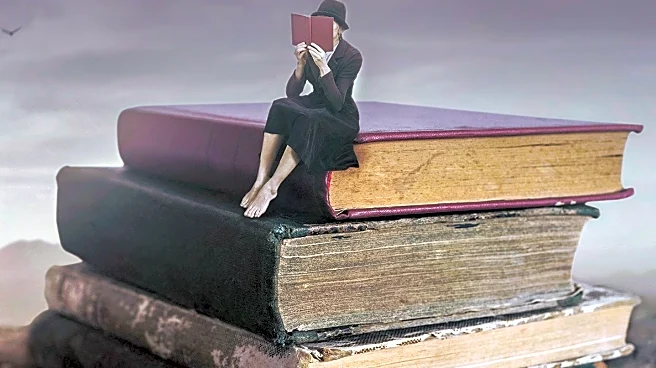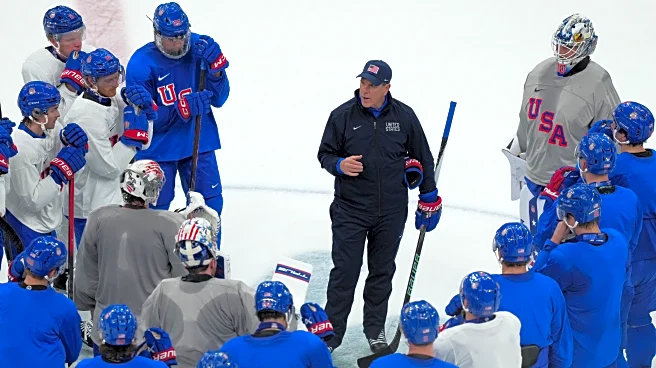What's Happening?
A recent paper published in iScience highlights the decline in time spent reading for pleasure in the U.S. over the past 20 years. The study reveals a 3 percent annual decrease in leisure reading, with growing disparities across races, education levels, and incomes. The decline raises concerns about the impact on the formation of scholars, as pleasure reading often inspires academic pursuits. The opinion piece argues for the importance of pleasure reading in graduate school, emphasizing its role in fostering creativity, improving writing skills, and enhancing memory and idea generation.
Why It's Important?
The decline in pleasure reading reflects broader societal shifts in how individuals consume information and engage with literature. For graduate students, maintaining a habit of pleasure reading can enrich their academic experience, providing a source of inspiration and creativity. It can also improve writing skills and critical thinking, essential for scholarly work. As the academic landscape evolves, balancing scholarly reading with leisure reading may become increasingly important for personal and professional development.
Beyond the Headlines
The discussion on pleasure reading highlights the cultural and educational implications of changing reading habits. It underscores the need for strategies to encourage leisure reading, particularly in academic settings. The focus on pleasure reading reflects broader trends in education and society, emphasizing the value of diverse reading experiences in shaping intellectual growth.











